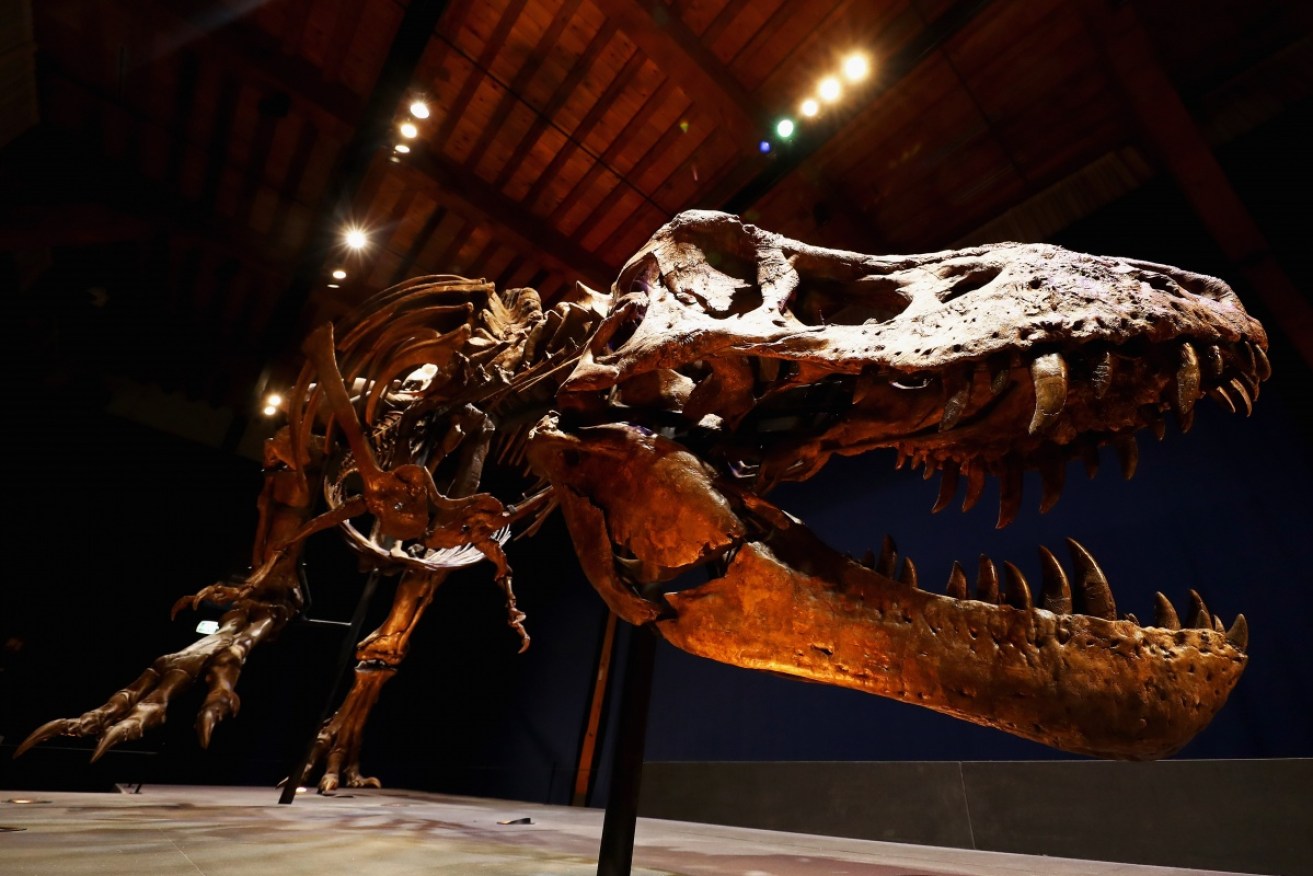What really killed the dinosaurs: a new theory


Dinosaurs became extinct because of their prolonged incubation, a new research found. Photo: Getty
Dinosaurs may have become extinct because they took so long to be born, a new theory claims.
The research suggests that non-avian dinosaurs took as much as six months to hatch – far longer than previously estimated.
According to the study examining the teeth of fossilised dinosaur embryos, the prolonged incubation may have affected dinosaurs’ ability to compete with more rapidly generating populations of birds, reptiles, and mammals following the mass extinction event that occurred 65 million years ago.
Scientists long assumed dinosaur incubation was similar to the rapid incubation of birds, which hatch within 11 to 85 days.
However the research found it more aligned to typical reptile incubation than to birds, taking three to six months.
“We know very little about dinosaur embryology, yet it relates to so many aspects of development, life history, and evolution,” study co-author Mark Norell said in a statement.
“But with the help of advanced tools like CT scanners and high-resolution microscopy, we’re making discoveries that we couldn’t have imagined 20 years ago. This work is a great example of how new technology and new ideas can be brought to old problems.”
The research tested the fossilised teeth of two well-preserved dinosaur embryos on each end of the size spectrum.
It analysed two specific species with eggs weighing from 194g to 4kg, identifying the pattern of ‘von Ebner’ lines — growth lines that are present in the teeth of all animals, humans included.

Fossilised embryo of a dinosaur found in China. Photo: Getty
This study marks the first time that these growth lines have been identified in dinosaur embryos.
“These are the lines that are laid down when any animal‘s teeth develops,” lead author and Florida State University professor Gregory Erickson said.
“They’re kind of like tree rings, but they’re put down daily. And so we could literally count them to see how long each dinosaur had been developing.”
The study also determined the prolonged incubation time had implications into the extinction of dinosaurs.
Prolonged incubation exposed non-avian dinosaur eggs and attending parents to predators, starvation, and environmental disruptions such as flooding, the research found.
In addition, slower embryonic development might have put them at a disadvantage compared to other animals that survived the Cretaceous-Paleogene extinction event.








